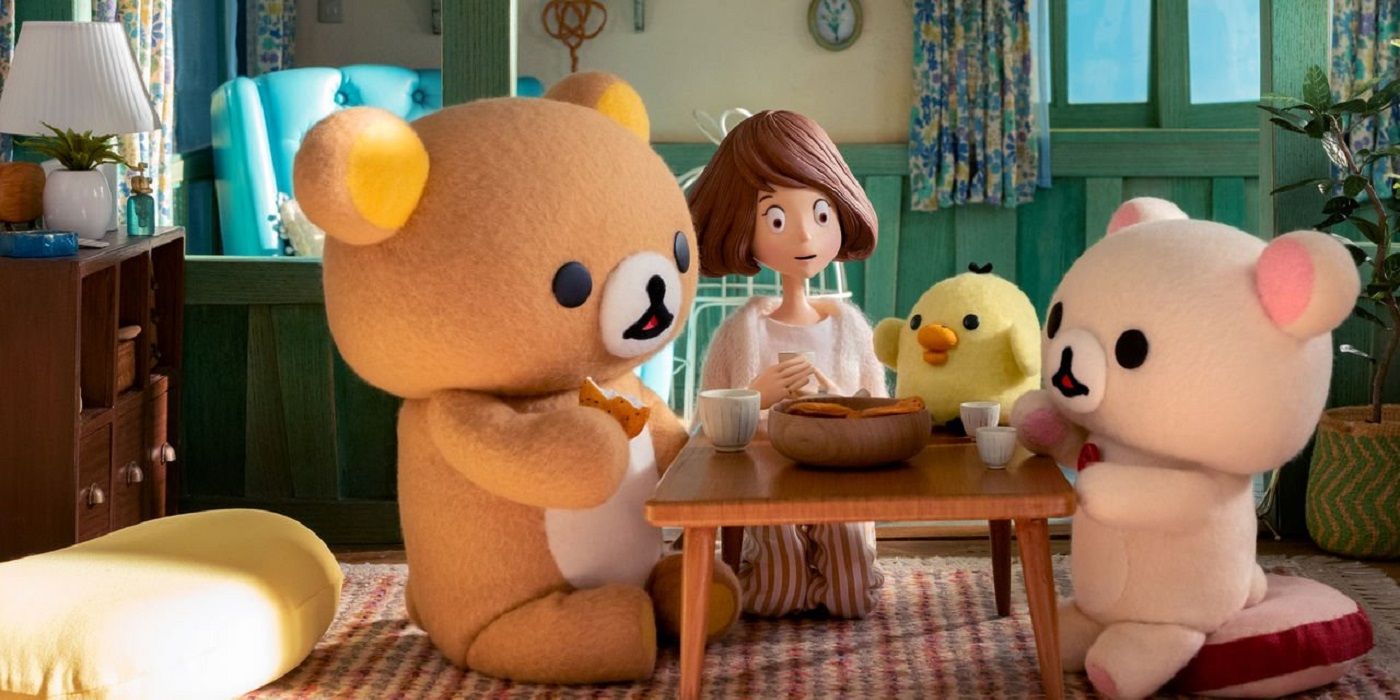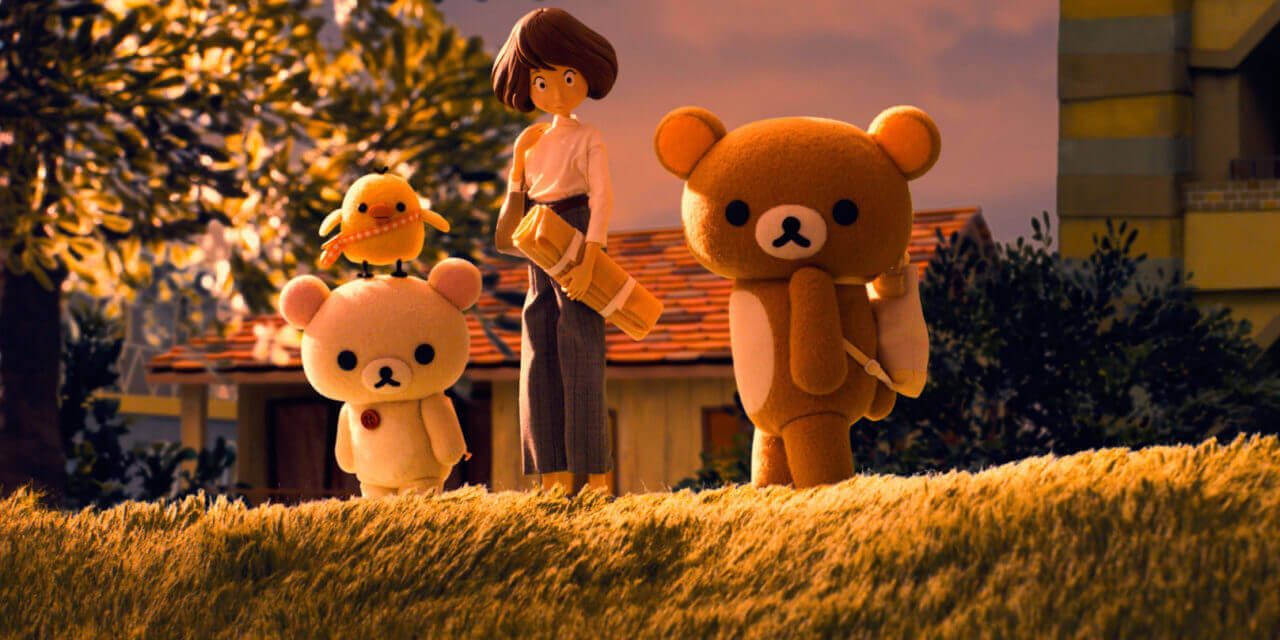While it's been commonplace in Japan for decades, the sub genre of 'slice-of-life' animated features is fairly rare for western audiences, much less entire series with a kid-friendly approach. Many in the west were perhaps first exposed to this style of animation via Aardman Animation's Wallace and Gromit short films, which may have also doubled as an introduction to stop-motion. Typically, stop-motion is used to depict everyday circumstances through a surreal lens, with the recent announcement of Hulu's MODOK series once again highlighting the aesthetically pleasing element of seeing toy-like creatures come to life through the mundane. But there's another well-made stop-motion series that has been around since 2019 which is made for all audiences. Based on a cutesy San-X brand toy, Rilakkuma and Kaoru might just be the peaceful dose of animated normalcy we could all use in a year like 2020.
Not unlike the breakout hit Aggretsuko, Rilakkuma's origins come from a series of shorts meant to promote the character to endear it to audiences for the sake of selling merchandise. A being of unknown form seemingly living within a giant stuffed bear costume (there's a zipper on the back), Rilakkuma is what his name literally sounds like in Japanese: a lazy bear. Unlike western mainstay Winnie the Pooh, however, Rilakkuma doesn't live in a magic wood or have whimsical misadventures with forest creatures. Rilakkuma, accompanied by two other similarly toy-like but very much alive creatures, essentially lives rent free in the apartment of Kaoru, an office worker who might have an otherwise much more lonely life. The series follows this absurd surrogate family of sorts as they navigate exceedingly ordinary struggles of daily existence, and it does so in a way that is aesthetically pleasing and, true to its title, relaxing.
For those not well-versed in Ghibli films, it might seem a bit strange to see such detail given to animating and portraying the mundanities of daily existence, but there is certainly something positive to be gained by slowing down to take it in. Like other similar stop-motion features, Rilakkuma and Kaoru presents characters (like Kaoru) who are very much adult and ordinary everyday people, contrasted by the child-like creatures she lives with. This helps bridge a gap across audiences and enables the series to welcome a family in ways most animated series found on streaming services aren't quite up to the task of doing. There aren't loud and bombastic bursts of energy here, but the toy-like animals - a big lazy bear, a small mischievous bear, and an impatient bird - manage to be endearing and cute while still coming across as spiritual children within the world. Kaoru in turn functions more or less like a mother to them, and even finds herself having to stress over how to support a family of four on her own, while her strange animal children attempt to suss out ways to contribute despite their lack of human capabilities.
The slice of life genre is less interested in plot or conflict and more intent on savoring the peacefulness of the mundane. Animated pieces in this genre often make great effort to portray the minute details of the smallest of things, be it the way tea is poured into a cup, the manner a sunset lights a still room, or the way dew pools across plants in the morning. Using stop-motion as its medium, Rilakkuma and Kaoru offers a spin on this genre that can feel new by virtue of depicting Japanese life via physical objects and textures. Even the art of how Dwarf Studio portrays certain elements of reality using small set materials has its charms, and the sheer visual component of the show can feel therapeutic. The narrative lends crumbs of development and plot, just enough to have something to mentally nibble at, leaving the main focus to be on appreciating the painstakingly realized mundanity of Kaoru's life and her relationship with her family of quirky critters.
For fans of Studio Ghibli's less fantastical works, Rilakkuma and Kaoru is a must-try. For those curious as to the appeal of the slice-of-life genre, of seeing more recent takes on stop-motion, or Wes Anderson's dives into the medium (Isle of Dogs, The Fantastic Mr. Fox) or Aardman Animation's misadventurous series of films, this show might be right up your alley. Even those adults who have enjoyed Aggretsuko may similarly understand the appeal here of seeing daily life from a Japanese cultural perspective, portrayed in an atypical animated style. And especially during the year we've been experiencing in 2020, some aesthetically relaxing, wholesome cartoons could be just the thing to help us slow down and appreciate what good we still have going for us in our day-to-day.
Rilakkuma and Kaoru can be streamed on Netflix.


